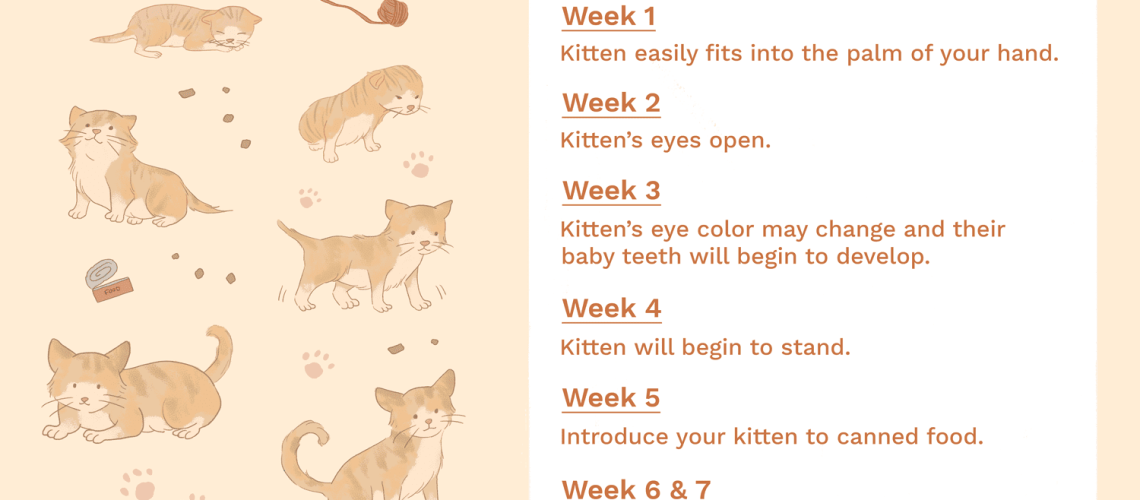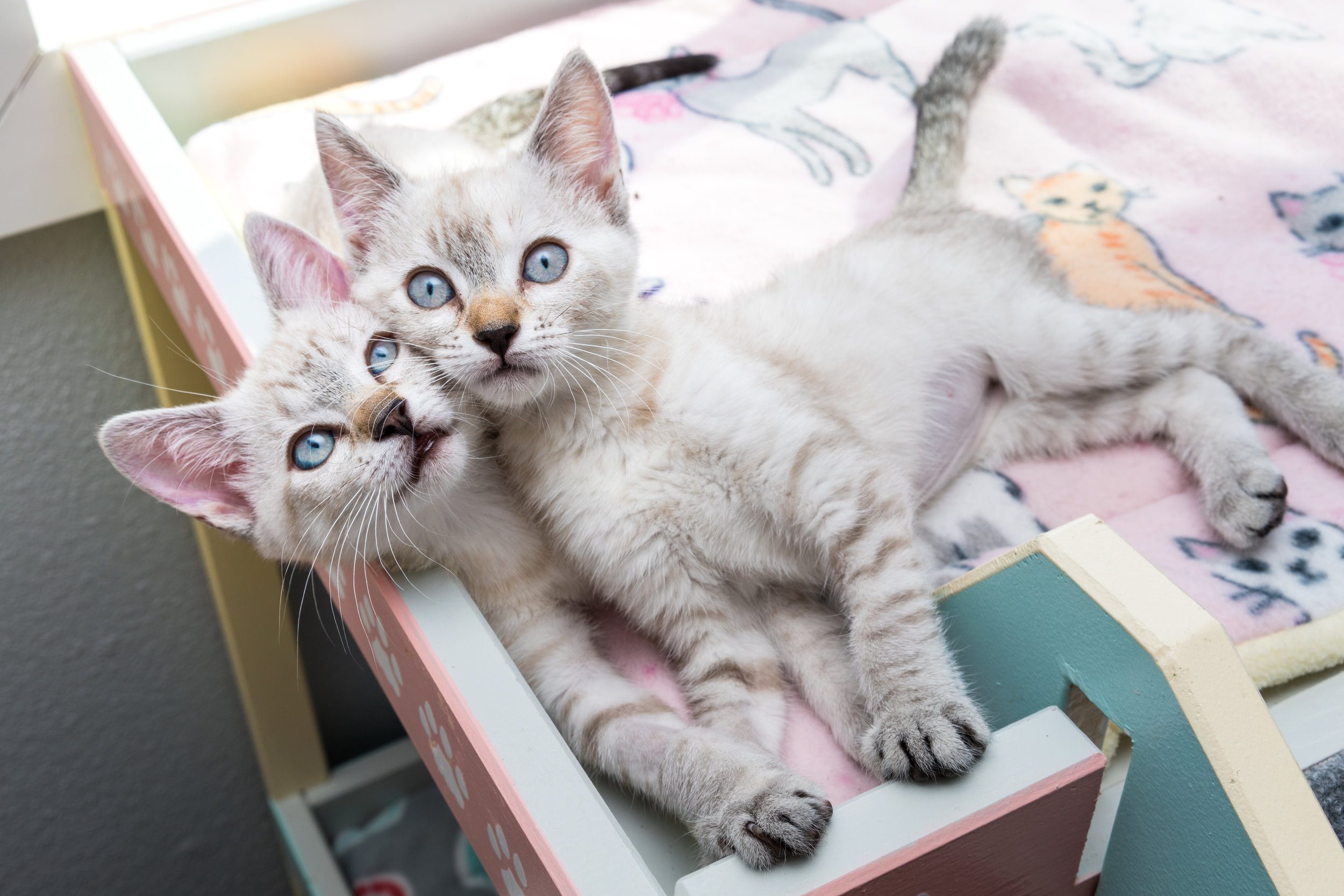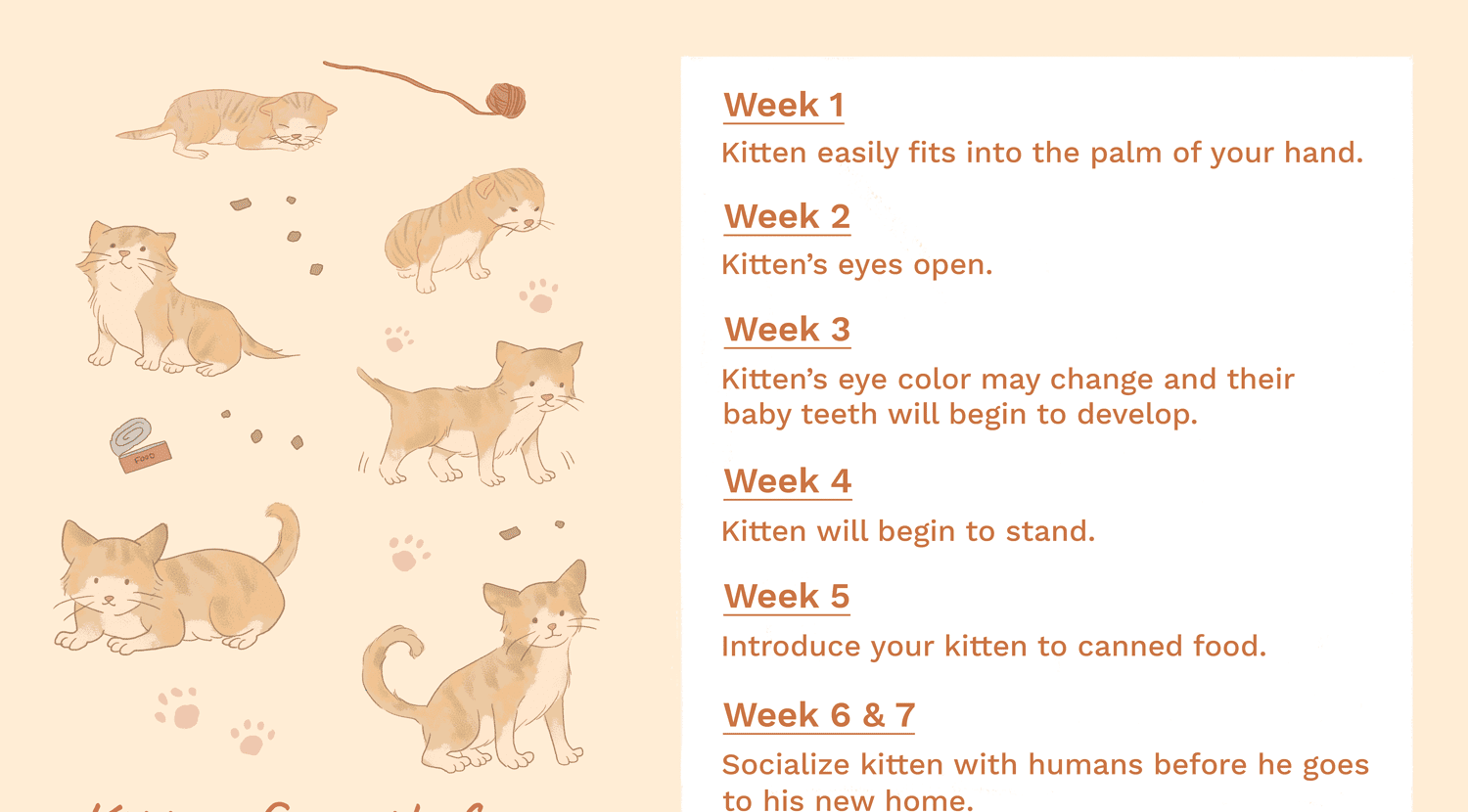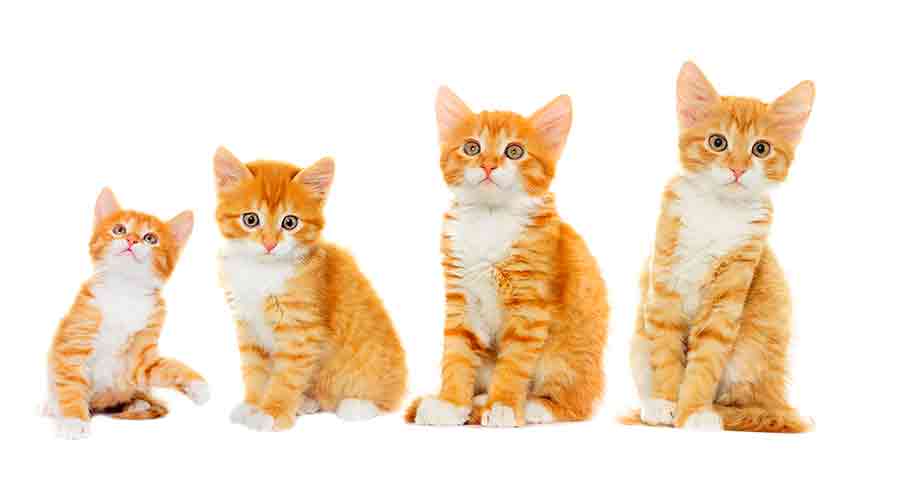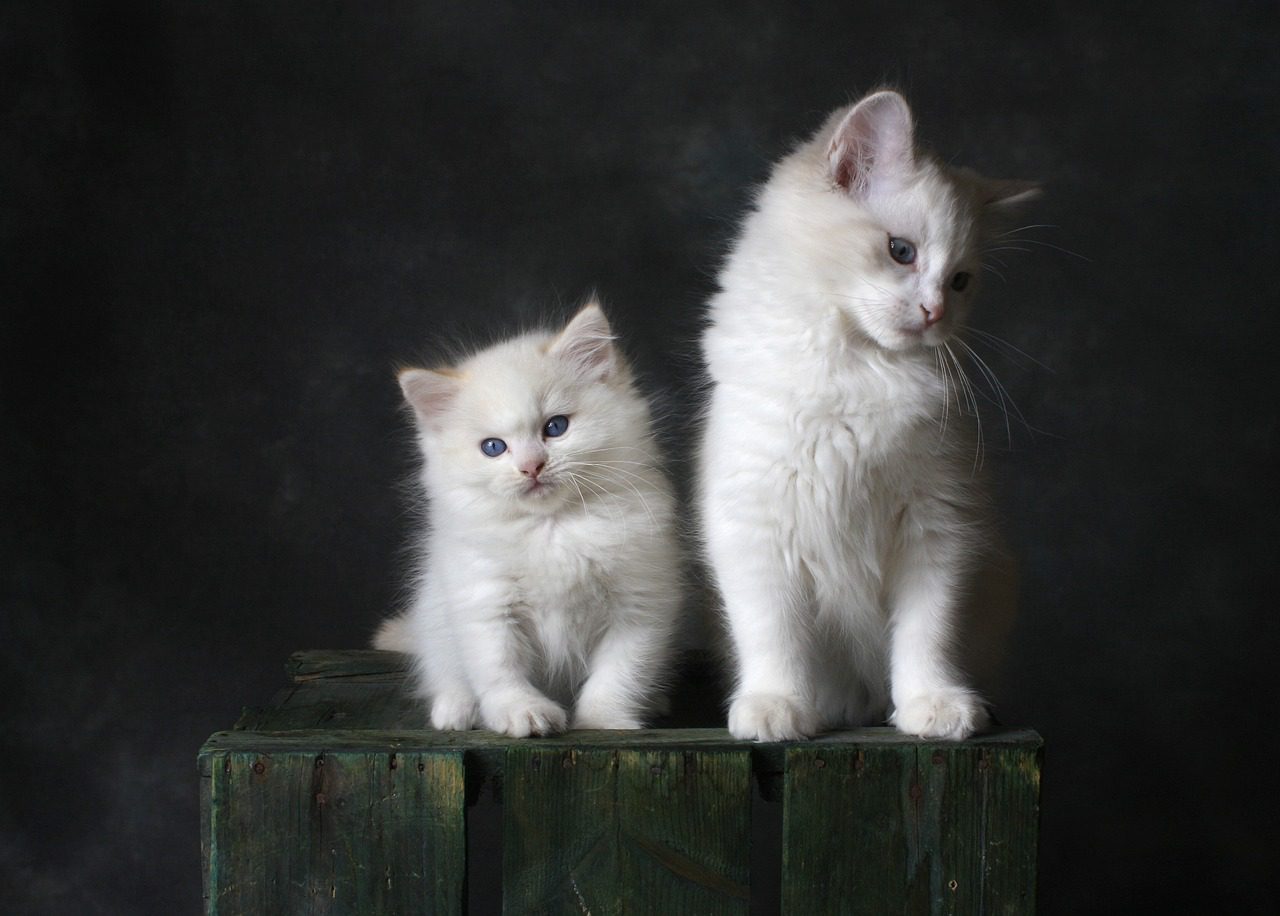Are you curious about how adorable little kittens grow and develop in their first few weeks of life? If so, you're in for a treat! Understanding the development of kittens during this crucial period can not only deepen your appreciation for these tiny creatures but also help you become a better caretaker if you have a furry friend at home. In just six weeks, these fluffy bundles of joy go through remarkable changes that shape their future health and behavior. By exploring the intricacies of kitten development, you'll gain valuable insights into their needs, behaviors, and milestones. So let's embark on this fascinating journey together and uncover the secrets behind the enchanting world of kittenhood!
Key Takeaways:
- Kittens are born blind and deaf, relying solely on their sense of smell and touch during the first few weeks of life.
- Their primary activities in the first six weeks include nursing, sleeping, and gaining weight rapidly.
- Kittens start to develop their coordination skills around three weeks old, beginning to explore their surroundings and play with littermates.
- By four weeks old, kittens can begin to be introduced to solid food and should be gradually weaned from their mother's milk.
- At six weeks old, kittens should have received their first vaccinations and can start the process of being socialized with humans and other animals.
Understanding Kitten Development in the First Six Weeks
Milestones in a Kitten's Growth During the First Six Weeks
During the first six weeks of a kitten's life, they go through several important milestones in their growth and development. In the first week, kittens are born with closed eyes and ears, and they rely solely on their mother for nourishment. By the end of the second week, their eyes begin to open, allowing them to see the world around them for the first time. They also start to develop their sense of hearing.
In the third week, kittens start to become more active and curious. They begin to crawl and explore their surroundings. By week four, they start to play with their littermates and show more coordination in their movements. This is also when they start to transition from nursing to eating solid food. In weeks five and six, kittens become even more adventurous and independent. They start venturing further away from their mother and learn important social skills by interacting with their siblings.
Physical Changes in Kittens as They Grow During the First Six Weeks
As kittens grow during the first six weeks of their lives, they undergo significant physical changes. At birth, kittens are very small and weigh only a few ounces. However, by week two, they have already doubled or even tripled in size! Their fur starts to grow thicker and longer, providing better insulation.
By week three or four, kittens' teeth begin to emerge, allowing them to chew on solid food alongside nursing from their mother. Their coordination improves as well, enabling them to walk more steadily and playfully pounce on toys or each other. As they approach six weeks old, kittens' bodies become more proportionate as they continue growing rapidly.
Caring for Kittens: What They Need from Their Mother and Humans
Nutrition and Care from the Mother Cat
During the first six weeks of a kitten's life, their mother provides essential care and nutrition. The mother cat produces milk to nourish her kittens, ensuring they receive all the necessary nutrients for healthy growth. She also keeps them clean by grooming them regularly, which helps stimulate their circulation and aids digestion.
The mother cat plays a crucial role in teaching her kittens important social skills and behaviors. She teaches them how to use the litter box, groom themselves, and interact with other cats. As the kittens grow older, they become more independent but still rely on their mother for guidance and protection.
Human Involvement in Kitten Care
While mother cats are excellent caregivers, human involvement is also essential in caring for kittens during their first six weeks. It is crucial to provide a safe and warm environment for the kittens, away from any potential dangers or hazards. Regular feeding with a high-quality kitten formula can supplement their nutritional needs if necessary.
Kittens should be handled gently and frequently by humans to ensure they become comfortable with human touch. This early socialization helps them develop into friendly and well-adjusted adult cats. Providing toys and interactive playtime also contributes to their mental stimulation and physical development.
Exploring and Playing: When Kittens Begin to Explore and Interact
The Beginning of Exploration
By around three weeks old, kittens start showing signs of curiosity about their surroundings. They begin to crawl out of their nesting area to explore nearby spaces. At this stage, it is crucial to provide a safe environment where they can explore without encountering any potential dangers or harmful objects.
Kittens may start to investigate objects, climb small obstacles, and playfully interact with their littermates. This exploration is an essential part of their development as it helps them learn about their environment and develop coordination skills.
Interacting with Littermates
Kittens begin to interact with their littermates more actively around four weeks old. They engage in play fights, chase each other, and practice stalking behaviors. These interactions help them develop important social skills and establish a hierarchy within the litter.
Playing with their littermates also promotes physical exercise and coordination. It allows them to practice hunting behaviors, such as pouncing and swatting, which are instinctual for cats. These playful interactions contribute to the overall development of the kittens' muscles and coordination abilities.
Developmental Achievements by the End of the Sixth Week for Kittens
By the end of the sixth week, kittens have achieved significant developmental milestones. They are now fully weaned from their mother's milk and are eating solid food independently. Their teeth have fully emerged, allowing them to chew effectively.
Kittens have also become more coordinated in their movements, displaying agility while playing and exploring. They have developed a strong bond with their littermates and show increased social interaction skills. Additionally, they have started using a litter box consistently.
At this stage, kittens should be ready for adoption into loving homes where they can continue to grow and thrive under proper care and guidance.
Nourishment and Veterinary Care: Ensuring Proper Health for Growing Kittens
Proper Nutrition for Growing Kittens
A balanced diet is crucial for the healthy growth of kittens during their first six weeks. High-quality kitten food provides all the necessary nutrients they need to support their rapid development. It is important to choose a food specifically formulated for kittens, as their nutritional requirements differ from adult cats.
Feeding schedules should be consistent, and fresh water should always be available. Gradually transitioning kittens from milk to solid food helps them adjust to the change in diet more easily. Regular monitoring of their weight gain and overall health is essential to ensure they are receiving adequate nutrition.
Veterinary Care and Vaccinations
Kittens should receive proper veterinary care during their first six weeks of life. A veterinarian can perform a thorough examination to check for any health issues or potential concerns. They can also provide guidance on vaccinations, deworming, and flea prevention.
Vaccinations protect kittens against common diseases such as feline distemper and respiratory infections. These vaccines help boost their immune system and prevent serious illnesses. Regular veterinary visits throughout the first six weeks and beyond are crucial for ensuring the overall health and well-being of growing kittens.
Developmental Achievements by the End of the Sixth Week for Kittens
Growth and Motor Skills
By the end of the sixth week, kittens have achieved significant developmental milestones. Their growth rate is remarkable during this period, with an average weight gain of around 100 grams per week. They become more active and start exploring their surroundings with increased curiosity. Their motor skills improve as they learn to walk steadily and even attempt to climb small obstacles. It's fascinating to witness their progress as they develop coordination and balance.
Socialization and Communication
During the sixth week, kittens begin to engage in social interactions and communication. They learn how to play with their littermates, engaging in mock fights and chasing games that help them develop important social skills. This playful behavior also contributes to their physical development as they strengthen their muscles through these activities. Additionally, kittens start responding to human interaction at this stage, recognizing familiar voices and seeking attention from their caregivers.
Key Developmental Achievements:
- Rapid weight gain of approximately 100 grams per week.
- Improved motor skills, including steady walking and attempts at climbing.
- Engaging in social interactions with littermates through play.
- Recognizing familiar voices and seeking attention from humans.
The sixth week is a crucial time for kittens' development, where they make significant strides in both physical growth and socialization. It's essential to provide them with a safe environment that encourages exploration while ensuring proper care and attention.
Nourishment and Veterinary Care: Ensuring Proper Health for Growing Kittens
Dietary Needs for Optimal Growth
To ensure the healthy growth of growing kittens, providing them with proper nourishment is vital. During this stage, it's recommended to transition them from solely nursing on their mother's milk to introducing solid food. High-quality kitten food that is specifically formulated to meet their nutritional needs should be introduced gradually. This helps them develop a balanced diet and ensures they receive essential nutrients for their growth.
Veterinary Care and Vaccinations
Regular veterinary care plays a crucial role in maintaining the health and well-being of growing kittens. It's important to schedule regular check-ups with a veterinarian to monitor their development, address any concerns, and ensure timely vaccinations. Vaccinations protect kittens from various diseases, such as feline distemper and respiratory infections, which can be life-threatening for young cats. By following the recommended vaccination schedule, we can help safeguard their health and provide them with a strong foundation for a healthy life.
Key Aspects of Nourishment and Veterinary Care:
- Gradual transition from mother's milk to solid food with high-quality kitten food.
- Providing a balanced diet to meet their nutritional needs.
- Regular veterinary check-ups to monitor development and address concerns.
- Timely vaccinations to protect against common feline diseases.
Ensuring proper nourishment and veterinary care is essential for the overall health and well-being of growing kittens. By providing them with the right nutrition and timely medical attention, we can support their growth, prevent potential health issues, and set them up for a happy and healthy life ahead.
In conclusion, the first six weeks of a kitten's life are crucial for their growth and development. During this time, they learn important skills like walking, playing, and socializing with others. It is important to provide them with proper care and attention during this period to ensure they grow into healthy and happy cats.
What to expect from a 6 week old kitten?
At this stage of development, kittens are able to run and are highly energetic and playful. While they are in the process of being weaned and becoming more independent, they may still nurse and rely on their mother for comfort.
Can 6 week old kittens poop on their own?
By the time kittens are 3-4 weeks old, they are typically able to go to the bathroom by themselves. They can also start using a litter box at this age. However, if a kitten is younger than 3 weeks old and has been orphaned, they will need to be stimulated with a warm wet cloth to help them poop.
What are kittens doing at 5 weeks?
At five weeks old, kittens become extremely active and playful. Their eyesight and coordination are fully developed at this point, allowing them to engage in more interactive play. They can now retract their claws voluntarily and you can observe the emergence of their unique personalities.
What is the fading kitten syndrome?
Fading kitten syndrome is a condition where newborn kittens struggle to survive and are at risk of dying prematurely, usually before they are fully weaned. The symptoms can vary depending on the underlying cause and may include excessive crying, low body temperature, lethargy, isolating from their littermates, weight loss, and difficulty with sucking.
Do 6 week old kittens drink water?
Are Kittens Able to Drink Water? Even though kittens rely on their mother's milk until they are weaned at around four weeks old, they also require water. Once they are weaned, most kittens have difficulty digesting milk sugar effectively, therefore their main source of hydration is water.
When can you start holding the kittens?
The mother cat will be very cautious and protective of her kittens. It is important to avoid handling them too early as they are susceptible to illness and infection. However, once they reach two weeks old, it is recommended to start introducing them to human touch and interaction for socialization purposes.



